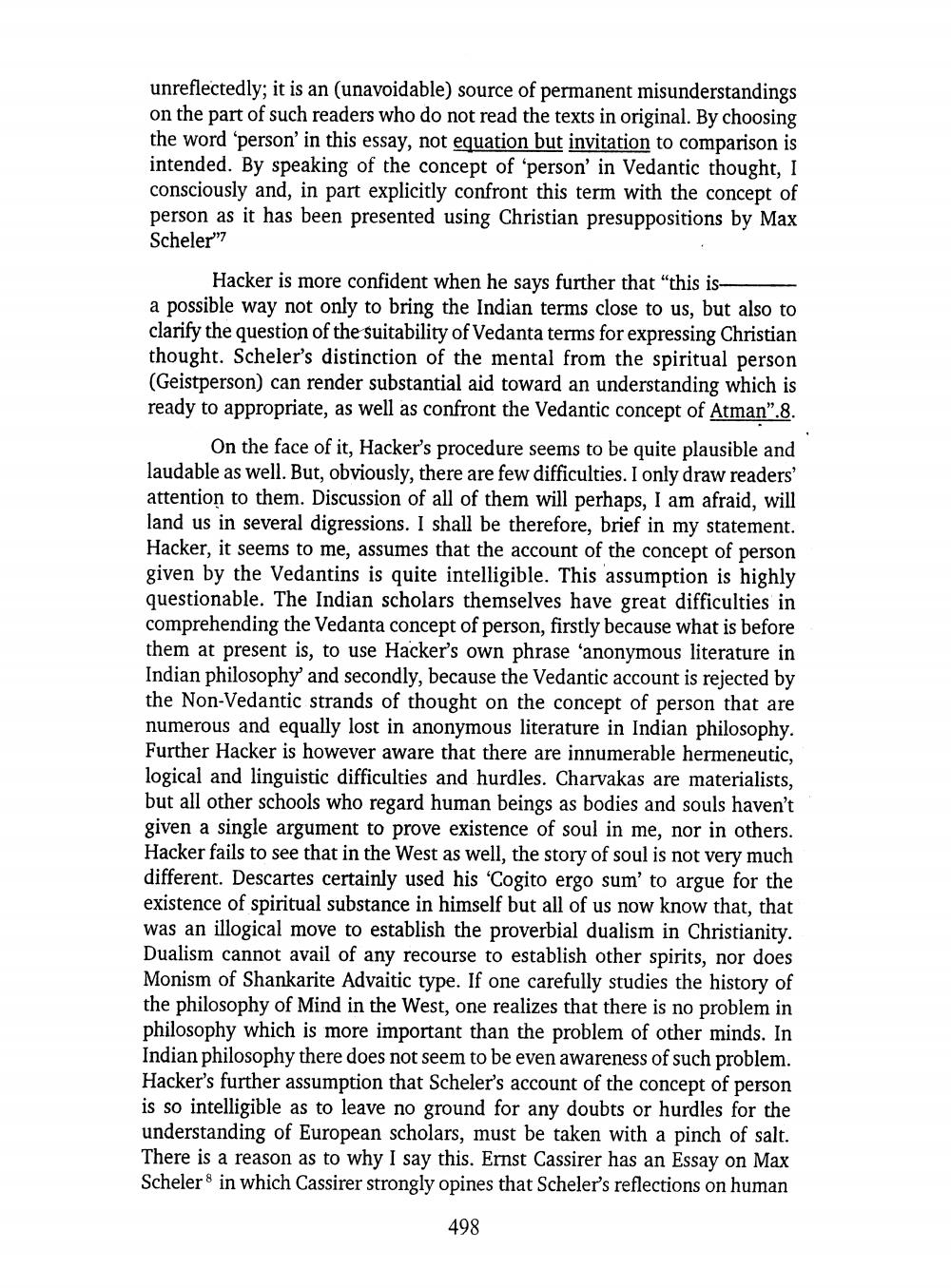________________
unreflectedly; it is an (unavoidable) source of permanent misunderstandings on the part of such readers who do not read the texts in original. By choosing the word 'person' in this essay, not equation but invitation to comparison is intended. By speaking of the concept of 'person' in Vedantic thought, I consciously and, in part explicitly confront this term with the concept of person as it has been presented using Christian presuppositions by Max Scheler"
Hacker is more confident when he says further that "this isa possible way not only to bring the Indian terms close to us, but also to clarify the question of the suitability of Vedanta terms for expressing Christian thought. Scheler's distinction of the mental from the spiritual person (Geistperson) can render substantial aid toward an understanding which is ready to appropriate, as well as confront the Vedantic concept of Atman".8.
On the face of it, Hacker's procedure seems to be quite plausible and laudable as well. But, obviously, there are few difficulties. I only draw readers' attention to them. Discussion of all of them will perhaps, I am afraid, will land us in several digressions. I shall be therefore, brief in my statement. Hacker, it seems to me, assumes that the account of the concept of person given by the Vedantins is quite intelligible. This assumption is highly questionable. The Indian scholars themselves have great difficulties in comprehending the Vedanta concept of person, firstly because what is before them at present is, to use Hacker's own phrase 'anonymous literature in Indian philosophy and secondly, because the Vedantic account is rejected by the Non-Vedantic strands of thought on the concept of person that are numerous and equally lost in anonymous literature in Indian philosophy. Further Hacker is however aware that there are innumerable hermeneutic, logical and linguistic difficulties and hurdles. Charvakas are materialists, but all other schools who regard human beings as bodies and souls haven't given a single argument to prove existence of soul in me, nor in others. Hacker fails to see that in the West as well, the story of soul is not very much different. Descartes certainly used his 'Cogito ergo sum' to argue for the existence of spiritual substance in himself but all of us now know that, that was an illogical move to establish the proverbial dualism in Christianity. Dualism cannot avail of any recourse to establish other spirits, nor does Monism of Shankarite Advaitic type. If one carefully studies the history of the philosophy of Mind in the West, one realizes that there is no problem in philosophy which is more important than the problem of other minds. In Indian philosophy there does not seem to be even awareness of such problem. Hacker's further assumption that Scheler's account of the concept of person is so intelligible as to leave no ground for any doubts or hurdles for the understanding of European scholars, must be taken with a pinch of salt. There is a reason as to why I say this. Ernst Cassirer has an Essay on Max Scheler in which Cassirer strongly opines that Scheler's reflections on human
498




